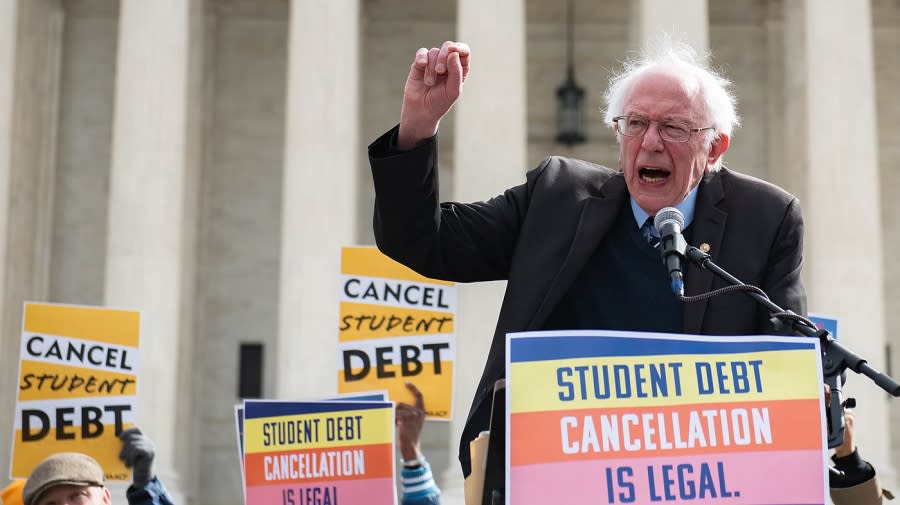Millennials became homeowners later than their parents and grandparents. Here’s why.
Millennials are now a homeowner-majority generation — a milestone achieved amid a global pandemic and an unsteady housing market.
The country’s largest generation has added millions to the homeowner ranks in the last decade alone and reached 18.2 million owners last year, according to recent data from the listing website RentCafe.
But this population, comprised of Americans born between 1981 and 1996, reached this hallmark of the American dream later than both their parents and grandparents, when their average age was 34. Generation X and baby boomers achieved this feat at ages 32 and 33 respectively.
“There was a long-standing belief that millennials never wanted to own and were perfectly content renting. That belief has proven to be false. The reality was — millennials were simply delaying big life moments compared to prior generations,” Zonda chief economist Ali Wolf told The Hill.
“This is because of a combination of reasons, including more women entering the labor force and having children later, delayed marriage and student loan debt,” Wolf added.
What took so long?

Millennial buyers are also facing a nagging lack of housing stock, stubbornly high home prices, volatile mortgage rates and growing inflation.
These younger buyers are also competing against some older buyers who’ve amassed substantial equity through previous home purchases, all while the average cost of a first mortgage is soaring.
Although mortgage rates are falling from their peak at more than 7 percent, they remain drastically higher than they were during the pandemic housing boom, when rates hit record lows.
Figures from the Mortgage Bankers Association show these persistently high rates drove up the average loan balance for first mortgages to $323,780 in 2022 from $298,324 a year earlier.
Meanwhile, data from the National Association of Realtors revealed that baby boomers, born between 1946 and 1964, made up the biggest share of homebuyers last year while the millennial share declined from the previous year.
And equity in an existing home could be a boost to baby boomers, especially those who are downsizing, Daryl Fairweather, chief economist for real estate brokerage Redfin, told The Hill.
“Especially for baby boomers, if they’re downsizing, they may be able to take the equity out of their home and take the next home in cash and then the interest rate doesn’t matter,” she said.
Younger buyers without home equity or financial help from their parents could struggle to make a purchase.
“At the same time, first-time homebuyers were instead left trying to amass a larger amount of funds in an economic environment where prices were rising rapidly on everything from rents to groceries,” Realtor.com chief economist Danielle Hale told The Hill.
Persistent lack of housing is also hindering millennials’ ability to find their first home. This is due partly to years of under-building following the 2008 financial crisis and housing crash, the end of which coincided with millennials forming their own households.
“Our estimates suggest that we have seen housing construction — both single-family and multifamily — lag behind household formation. In other words, we haven’t built enough homes for millions of new households, and that’s driving up the cost of owning and renting existing homes and apartments while leaving fewer existing homes and apartments vacant,” Hale said.
High student debt holds millennials back

Millennials caught a break amid the pandemic when the federal government paused student loan payments. Around 15 million millennials hold student debt, the largest number among all generations, figures from the Education Data Initiative show. On average, they owe more than $33,000 per borrower.
The Biden administration has said payments will resume after the Supreme Court rules on a lawsuit brought against his administration’s forgiveness program or 60 days after June 30.
Millennial student debt holders could theoretically afford homes and take on monthly mortgage payments. But the upfront costs of home-buying, including down payments and closing costs, create another set of issues, Wolf said.
Yet, in the current environment marked by high prices, low inventory and volatile mortgage rates, loan forgiveness may not be the ticket to homeownership.
“With a student loan pause, I think some [younger buyers] were optimistic that that wouldn’t be something hanging over their heads anymore, and that that would give them the opportunity to afford a mortgage,” Fairweather said.
“But even if student loan debt was forgiven, what would happen is that more people would be able to buy a home and that would drive up home prices, because it’d be more demand for homes,” she added.
“Prices really always come back to the lack of supply.”
For the latest news, weather, sports, and streaming video, head to The Hill.

